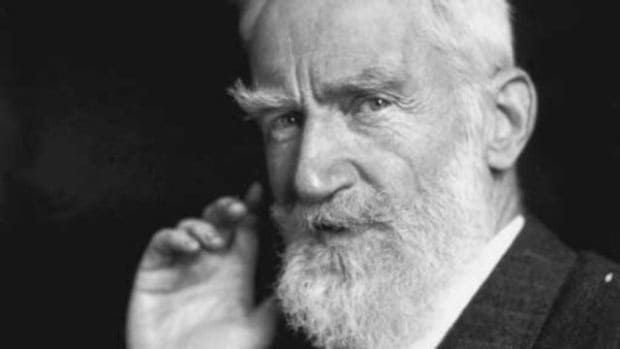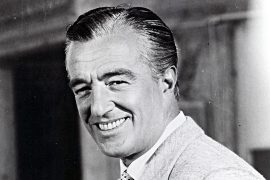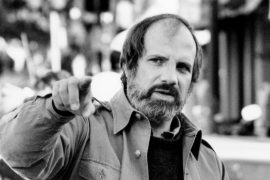The writer and playwright George Bernard Shaw was born in Ireland, in Dublin, on July 26, 1856. Coming from a family of English origin; When George was very young, his father, an alcoholic, lost his job and the family was forced to live in poverty.
He did however, but without continuity, attend various schools, but the value of his education would grow through his reading of William Shakespeare and the Bible.
In 1876, at the age of twenty, he moved to Victorian London where his mother taught him to sing; young George was penniless but armed with plenty of ideas. In these years, after reading “Capital” by Karl Marx, he leaned towards socialism; in London he immediately joined the “Fabian Society”, a group of intellectual socialists more attentive to problems of social equality than to those of class struggle. He also attempted a literary debut as a novelist, which however was unsuccessful.
In 1885 he became a literary critic for the “Pall Mall Gazette”, then an art critic for “El Mundo”, and between 1888 and 1890 he was also a music critic for “The Star”, establishing himself as one of the best critics of the time. Later he turned to the theatre, first as a critic in the “Saturday Review”, and then as a writer with “The quintessence of Ibsenism” (1928). Shaw became a staunch admirer of Richard Wagner, while in terms of literary approaches he was close to the dramatic theories of Henrik Ibsen.
By 1892 he felt ready for his first comedies; he began with “Widower’s House” and touched on the lurid theme of female prostitution in “Mrs Warren’s Profession” (1894): however, in this early period he still remained strongly influenced by Ibsen.
In 1898 he married Charlotte Payne-Townshend, an Irish heiress who eased his financial worries and allowed him to devote himself full time to the theater: production multiplied with the dramas “Caesar and Cleopatra”, “Man and Superman” and “The Commander Barbara”, although his most famous work is, however, “Pygmalion” from 1914, in which he addresses some of his main themes, from the emancipation of women and his discourse on language.
In the years following World War I, Shaw sharpened his sarcastic character; in 1923, he wrote what is considered his masterpiece, “Santa Juana”.
Shaw always considered himself a “preacher in the guise of a mountebank”, but in 1925 he achieved international recognition by being awarded the Nobel Prize for Literature. He refused to collect the prize money, saying, “I can forgive Alfred Nobel for inventing dynamite, but only a devil in human form could have invented the Nobel Prize.”
Even as an old man, in his nineties, he continued to write. George Bernard Shaw died on November 2, 1950 as a result of a fall while chasing a butterfly at his Ayot St Lawrence residence.
What was George Bernard Shaw famous for?
George Bernard Shaw is famous for his role in revolutionizing comedic drama. He was also a literary critic and a prominent British socialist. Shaw’s most financially successful work, Pygmalion, was adapted into the popular Broadway musical My Fair Lady.
What were George Bernard Shaw’s beliefs?
Shaw remained a committed socialist throughout his life and career. Many of his plays, including Mrs Warren’s Profession and Pygmalion, are underpinned by socialist politics, addressing issues such as women’s rights, poverty and capitalism.
Who is George Bernard Shaw quotes?
Life isn’t about finding yourself.
Progress is impossible without change,
Some men see things as they are and ask why.
We don’t stop playing because we grow old;
You use a glass mirror to see your face;
Youth is wasted on the young.
I learned long ago, never to wrestle with a pig.
What did George Bernard Shaw win the Nobel Prize for?
Shaw is one of only two people to have won both an Academy Award and a Nobel Prize for Literature. He was awarded the Nobel Prize in 1925; the committee said that his work was “marked by both idealism and humanity, its stimulating satire often being infused with a singular poetic beauty”.
How did Shaw obtain freedom of speech?
But Shaw said that he would talk only on controversial politics and religion and he didn’t want any fee except his third class railway ticket. On this condition Shaw was allowed to speak on controversial politics and religion. Thus Shaw obtained freedom of speech.
Why is Shaw not happy with the capitalist system?
Shaw does not like Adam Smith’s philosophy. He has argued that the capitalist system has failed because now machines have replaced men. However he has praised the poet Goldsmith who had complained that Wealth accumulates and Men decay.
What is capitalism according to GB Shaw?
It is a historical fact, recurrent enough to be called an economic law, that capitalism, which built great civilizations, if sustained beyond a certain point, destroys them.
How does Shaw use satire?
Satire is literary device that Shaw uses in his play Pygmalion as a way to criticize and solve the problems of the Victorian society. In addition, he used satire in order to denounce and disprove the false social values and class division.





